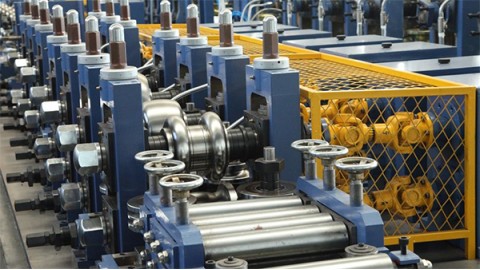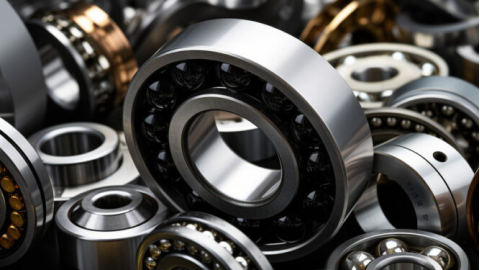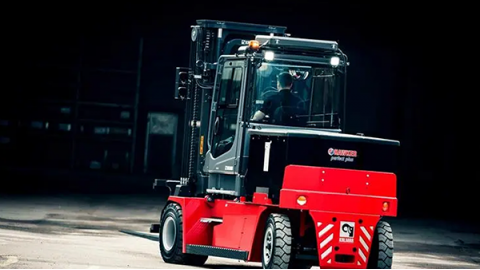Top 10 Grain Processing and Pasta Making Companies
Grain processing and pasta making are key parts of the global food industry. They turn raw grains like wheat, corn, and rice into food products for billions of people. The market is growing fast due to population growth, urbanization, and the spread of Western diets in Asia and Africa. Technology improves efficiency and quality. Sustainability and health trends are also changing how companies operate. This list shows the top companies leading this sector.

What Are Grain Processing and Pasta Making?
Grain processing is the industrial work of changing raw grains into flour, cereal, or other products. It includes cleaning, milling, and grading. Pasta making is a specific process. It uses grain flour, mainly from durum wheat, to make products like noodles and macaroni. Key terms include milling (reducing grain size with rollers or hammers), extrusion (pushing dough through a mold to shape it), and drying (reducing moisture for a longer shelf life). These steps ensure safety, consistency, and nutrition. They also meet global standards like ISO 22000.
How We Rank the Top Companies
We rank companies based on clear data. We look at annual revenue in US dollars, market share percentage, number of operating countries, product variety, and investment in innovation. For example, companies with over $1 billion in revenue rank higher. We also consider sustainability efforts, like cutting water use or carbon emissions. Certifications like non-GMO or organic add points. We leave out smaller brands like Jinpai that do not meet the scale.
Barilla Group
Barilla leads the global pasta market from Italy. It has annual revenue of about €4.5 billion. It holds 25% of the world's pasta market share. The company uses high-quality durum wheat from farms in Italy and North America. Its products include dry pasta, sauces, and ready meals. It offers over 200 different items. Barilla uses high-speed extrusion to make production 20% more efficient. It also makes whole grain and gluten-free pasta for health-focused customers. For sustainability, Barilla aims to cut water use by 30% by 2030. It also recycles packaging. It focuses on Europe and North America but is growing in Asia with local flavors.
Ebro Foods
Ebro Foods is a Spanish company with yearly revenue of around €2.8 billion. It focuses on rice and pasta processing. Its grain division handles over 2 million tons each year. Brands include Brillante for rice and Garofalo for pasta. Ebro uses steam to treat rice and keep its nutrients. For pasta, it uses bronze molds to create a rough surface that holds sauce better. The company controls its supply chain from farm to factory for full traceability. It develops new products like iron-rich rice for areas with high anemia rates. It uses AI for quality control, cutting defects by 15%. Ebro operates in Europe, the Americas, and Africa, often buying local brands to expand.
Archer Daniels Midland (ADM)
ADM is a US agricultural processing giant. It has annual revenue over $85 billion. It runs more than 500 processing plants worldwide. These facilities mill wheat, corn, and barley into flour, starch, and sweeteners. ADM's pasta business includes brands like Eatem Foods and private label production. The company uses enzymes to make grains easier to digest. It also uses closed-loop water systems to reduce waste. ADM aims for net-zero emissions by 2035. It helps farmers use digital tools to improve yields. ADM is strong in North and South America but is growing in Asia due to demand for animal feed.
Nisshin Seifun Group
Nisshin Seifun is a top grain processor in Asia based in Japan. It has annual revenue of about $4 billion. Its main work is wheat milling and pasta production. It uses special methods like low-temperature milling to save nutrients. It also uses ultrasound extrusion to make pasta with even texture. Products range from Japanese udon to Italian-style pasta. Nisshin makes functional foods, like flour with added fiber, for older consumers. Automation in warehouses has cut labor costs by 20%. The company reduces plastic use and saves energy in its factories. It mainly operates in Japan and Southeast Asia through joint ventures.
Other Leading Companies
B&G Foods from the US has $1.7 billion in revenue. It focuses on ready-to-eat cereals like Cream of Wheat.
De Cecco is an Italian family business with €500 million revenue. It is known for slow-drying pasta to keep the wheat's flavor.
ITC Limited in India has a grain processing revenue of $1.2 billion. It uses fortified flour to fight malnutrition.
Yildiz Holding from Turkey has $10 billion revenue. Its subsidiary Ulker makes pasta and biscuits for the Near East market.
Gruma in Mexico is the world's top corn flour producer with $4.5 billion revenue. It uses nixtamalization, a traditional method, to boost nutrition.
Industry Trends and Future Outlook
Health trends are increasing demand for whole grain and high-protein pasta. This segment grows about 8% each year. Sustainability is now central. Companies invest in water-saving tech and renewable energy. AI helps predict machine maintenance, cutting downtime by 20%. 3D printing can make custom pasta shapes. Challenges include climate change affecting grain supply. This requires diverse sourcing. Supply chain problems push for more local production. In the next five years, expect more mergers and acquisitions. Biofortified products, like flour with added vitamins, will expand to emerging markets for better food security.




